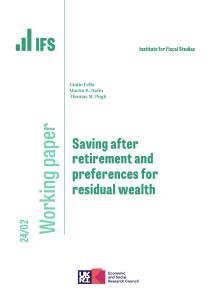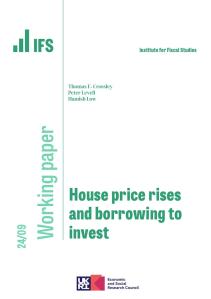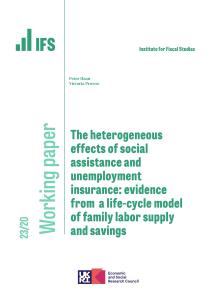We document an effect of survey participation on household saving. Identification comes from random assignment to modules within a population-representative Internet panel. The saving measure is based on linked administrative wealth data. Households that responded to a detailed questionnaire on needs in retirement reduced their non-housing saving rate by 3.5 percentage points, on a base of 1.5%. The survey may have acted as a salience shock, possibly with respect to reduced housing costs in retirement. Our findings present an important challenge to survey designers. They also add to the evidence of limited attention in household financial decision making.
Authors

Research Fellow University of Michigan
Tom is a Research Fellow at IFS, a Research Professor for the Institute for Social Research at the University of Michigan.

Ludwig-Maximilians-Universität München

Liam Delaney

Jochem de Bresser
Journal article details
- DOI
- 10.1111/ecoj.12398
- Publisher
- Wiley
- Issue
- March 2017
Suggested citation
Crossley, T et al. (2017). 'Can survey participation alter household saving behaviour?' (2017)
More from IFS
Understand this issue

The future of the state pension
21 December 2023

Pensions are far from broken but could still use a fix
18 December 2023

Retirement is not always a choice that workers can afford to make
6 November 2023
Policy analysis

The future of the state pension
13 December 2023

Help onto the housing ladder: the role of intergenerational transfers
8 December 2023

Around half of first-time buyers in their 20s receive financial help to buy their home, with large consequences for their subsequent wealth accumulation
8 December 2023
Academic research

Saving after retirement and preferences for residual wealth
18 January 2024

House price rises and borrowing to invest
27 March 2024

The heterogeneous effects of social assistance and unemployment insurance: evidence from a life-cycle model of family labor supply and savings
5 June 2023